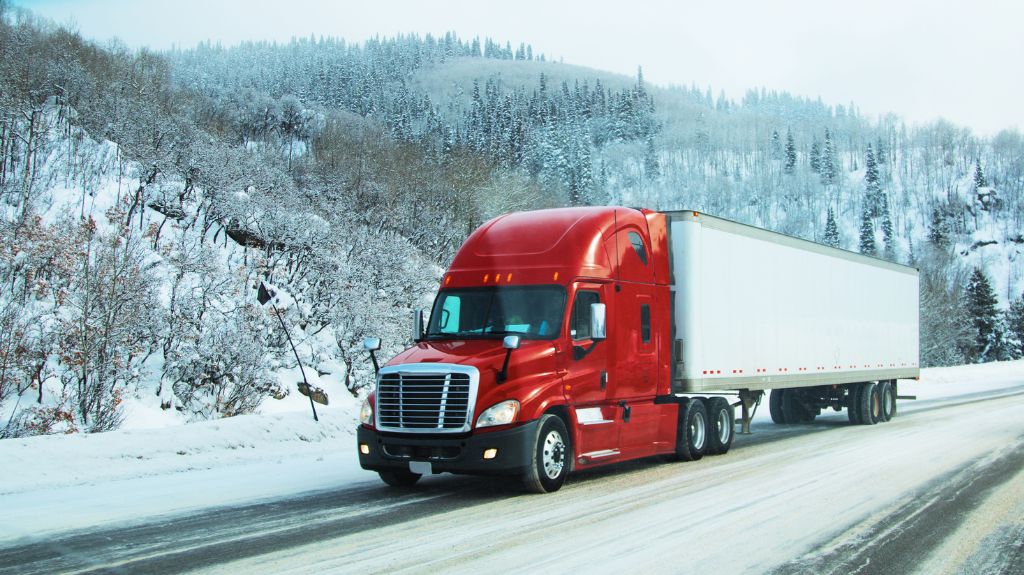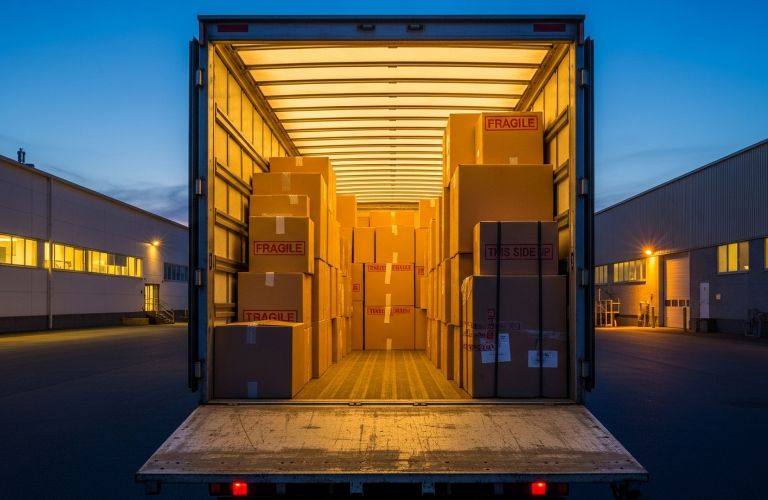What Are the Differences Between FTL and LTL Shipping?
Published:Nov 24, 2025
5 min. read
What type of shipping does your trucking company specialize in? Do you handle more Full Truckload (FTL) shipments? Do you handle more Less-Than-Truckload (LTL) shipments? New and growing freight companies may have questions about the different types of shipments and TenTrucks may be able to help answer questions like — what are the differences between FTL and LTL shipping?
FTL Shipping vs. LTL Shipping
Trucking and freight companies that are new to the industry — or companies that just need a refresher may want a clearer picture and better understanding of the key differences between FTL shipping and LTL shipping. TenTrucks has got you covered with this quick comparison that highlights the key differences between each type of shipment, how it impacts your freight business, and how innovative solutions, like a Transportation Management System (TMS) can help with load management.

What Is Full Truckload (FTL) Shipping?
When most people pass a commercial truck on the highway, they likely assume that it is loaded with cargo that is all going to the same destination — a truckload of boxes for a retail store or a truckload of food for a grocery store. When a truck carries a single dedicated shipment that is being delivered to a single location, that is Full Truckload shipping and FTL shipments account for an estimated 75% of the freight market in the United States based on some reports. This high volume makes load management an important factor for freight companies that prioritize FTL shipping.
What Are the Key Facts About FTL Shipping?
- Size of Shipments: FTL shipping is ideal for large shipments that take up the entirety or majority of a truck — more than 12 pallets of cargo.
- Shipment Speed: With all of the cargo on the same truck and direct Point A-to-Point B delivery with no stops on the way, the shipment speed for FTL shipments is typically faster than LTL shipments.
- Shipment Costs: FTL shipments tend to cost more for shippers because those companies are forced to pay for the entire capacity of the truck.
- FTL Shipments Are Best for: FTL shipping is best for larger, high-value, and time-sensitive shipments.
What Are the Benefits of FTL Shipping?
- Full Truckload shipping that can go directly from the shipper to the delivery point without additional stops is faster and more efficient than LTL shipping.
- There is less risk of damage or theft with FTL shipments that do not have to be handled or transferred multiple times.
- Freight companies have more control over scheduling and routing when trucks do not have to make multiple stops.
- With a single destination, the logistics and billing of FTL shipments is much simpler and reduces the administrative load.
- Full Truckload shipments are ideal for freight companies that ship specialized cargo like medicine, food, or special equipment.
What Is Less-Than-Truckload (LTL) Shipping?
Remember that commercial truck you passed on the highway earlier? Not all trucks simply carry a single shipment from Point A to Point B. Many have multiple shipments aboard that go to multiple locations, so trucks need to make stops at Point B, Point C, Point D, Point E, Point F, and more. This is the core tenet of Less-Than-Truckload shipping operations and the element that makes load management more complicated for trucking and freight companies.
What Are the Key Facts About LTL Shipping?
- Size of Shipments: Less-Than-Truckload shipments means there are multiple smaller loads — from 1-6 pallets — on a truck that do not always fill it to capacity.
- Shipment Speed: FTL shipments take longer to be delivered because they have more stops to make en route to the final destination.
- Shipment Costs: The costs for LTL shipments tend to be lower and more cost-effective for shippers because shipments take up less space and shipments are billed based on the space used.
- FTL Shipments Are Best for: LTL shipments are ideal for smaller cargo, cargo that is not fragile, and shipments where cost takes priority over delivery speed.
What Are the Benefits of LTL Shipping?
- The primary benefit of LTL shipping is the lower costs of shipping. Shippers pay for the space used on the truck and less cargo means less space taken up and translates to lower costs. Many available LTL carriers lead to competitive pricing in the industry that can benefit shippers.
- LTL shipping is built to provide flexible options for both shippers and freight carriers with flexible scheduling, flexible routing, and more flexible load management.
- With the nature of LTL shipping, real-time tracking is even more valuable, allowing freight carriers and customers to see where their cargo is either with the Bill of Lading, Electronic Data Interchange (EDI) software, and advanced GPS tracking systems.
READ MORE: What Are Future Trucking Industry Trends and Forecasts for 2026?
Are you new to the trucking and freight industry? Do you just need a quick refresher course? You may be asking — what are the differences between FTL and LTL shipping? We hope that this quick overview created by TenTrucks will answer your questions.
Contact the TenTrucks Team for more information on our products and services!